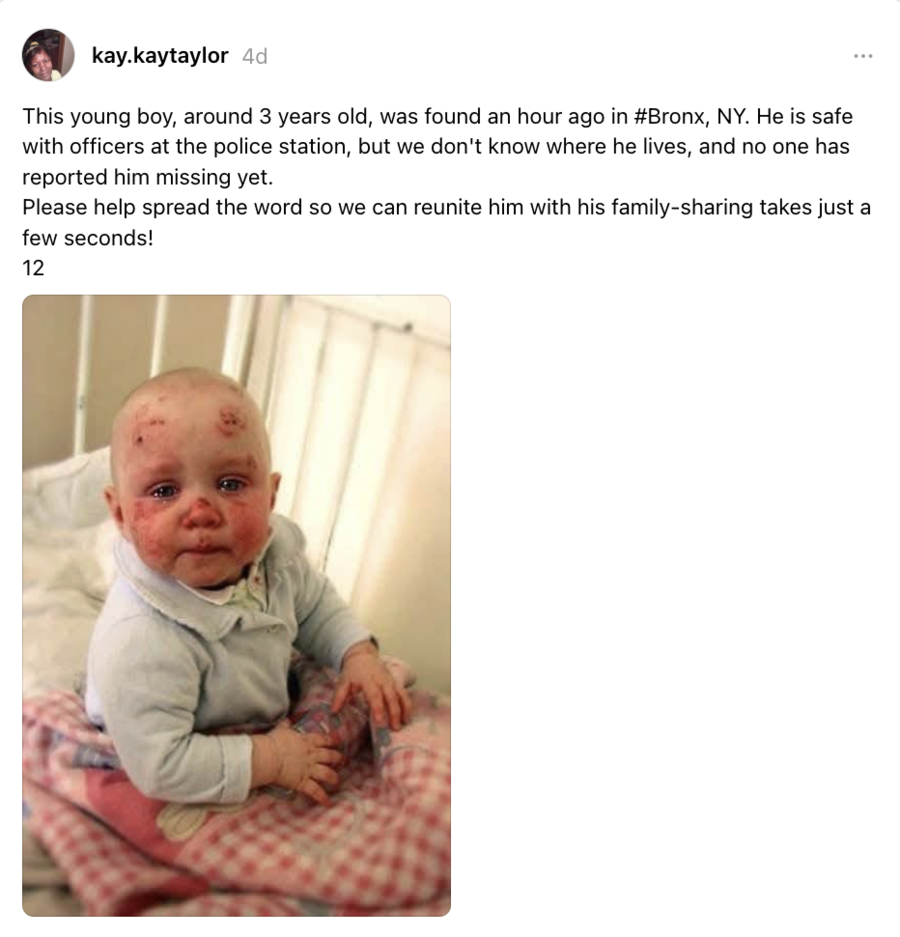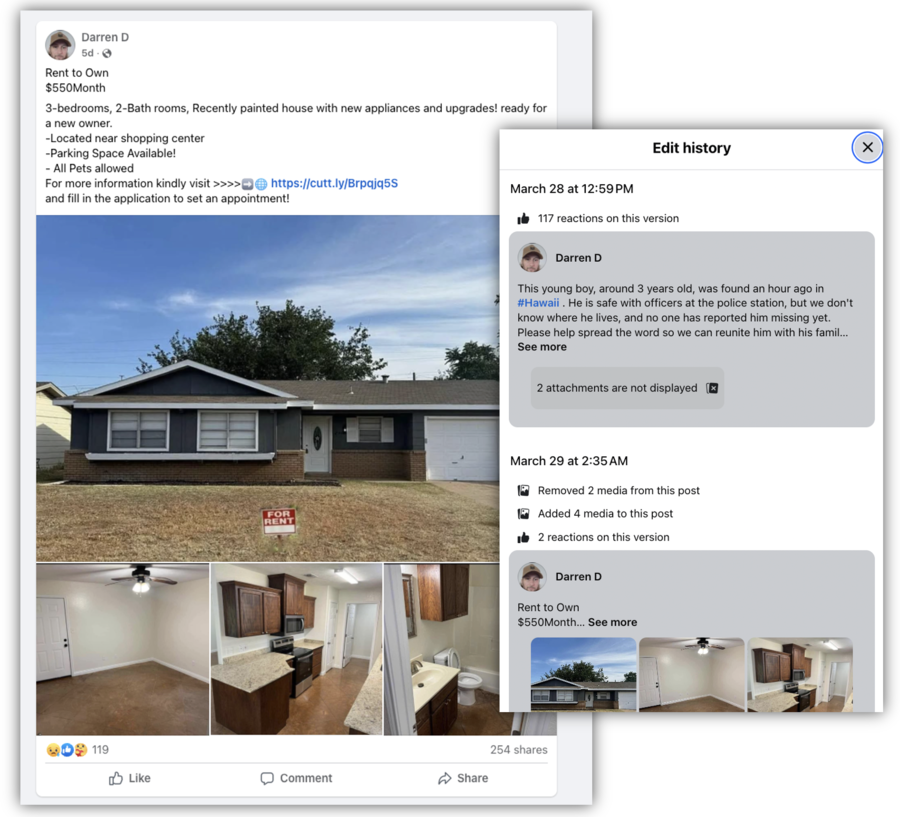
Do posts about a "young boy, around 3 years old," found in The Bronx express authentic concern about the child said to have been found unattended "an hour ago"? No, that's not true: The content of these posts was later replaced with real estate images and obscure links. This is a common tactic to trick people into disclosing sensitive personal and financial information, as posts gain increased visibility resulting from likes and shares generated by the image of the child.
The claim appeared in a post (archived here) published on Threads on March 30, 2025. It opened:
This young boy, around 3 years old, was found an hour ago in #Bronx, NY. He is safe with officers at the police station, but we don't know where he lives, and no one has reported him missing yet. Please help spread the word so we can reunite him with his family-sharing takes just a few seconds!
This is what the post looked like at the time of writing:
(Source: Threads screenshot taken on Thu Apr 3 15:39:48 2025 UTC)
Such entries did not describe a real-life event.
As edit history confirms, posts about the "young boy" were flipped (archived here) to advertise some real estate and lure people into clicking a link:
(Source: Facebook screenshots taken on Thu Apr 3 between 15:49:27 and 15:50:26 2025 UTC)
The collage below shows that posts claimed the same baby was simultaneously found in different locations:
(Sources: Facebook screenshots taken on Thu Apr 3 between 16:09:28 and 16:10:55 2025 UTC)
Real estate scam posts
Real estate scam posts are a tactic used on Facebook by spammers that employ "bait and switch" content to lure people into a scam. Scammers will pair an alarming or heart-wrenching claim with a compelling image to catch people's attention -- missing children or aging adults, injured animals, injured people in hospital beds -- and drive engagement.
Once a post has gathered sufficient attention, the scammer replaces the bait, switching to a deceptive real estate ad to harvest personal information from users interested in the too-good-to-be-true price. The wording and images of these eye-catching posts, typically seen on local Facebook "yard sale" pages, are frequently identical, even when the offered property is located in different cities, regions of the U.S., or countries.
The content switch is clearly documented by a post's edit history, which also notes additions or deletions of content. To access the edit history of a Facebook post, click the three dots in the top right corner and select "View edit history" from the menu.
Commonly, such posts use links that lead to landing pages with disclaimers or false promises and contact information requests used to gather personal data, including financial information.
Read more
Other Lead Stories fact checks related to such bait-and-switch scams are found here.




















